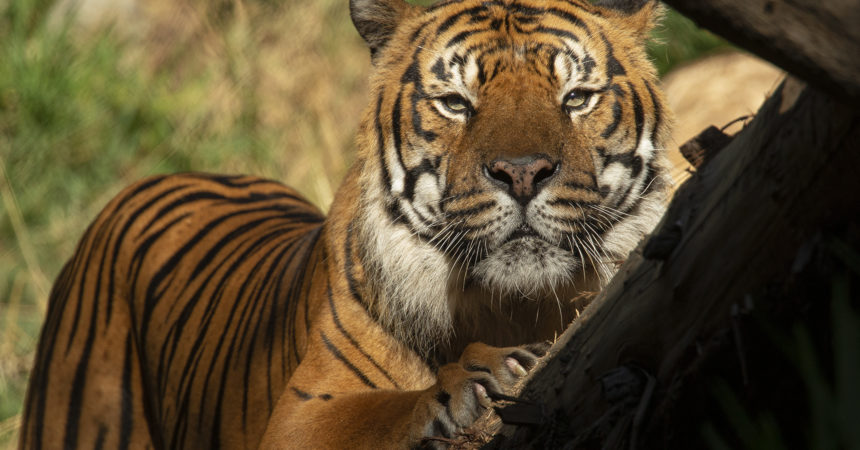Get ready for Global Tiger Day 2019 on Monday, July 29th! Join us to celebrate these charismatic, endangered animals at the San Diego Zoo Safari Park’s Tiger Trail, where we will celebrate our seven Sumatran tigers with enrichment releases, keeper talks, training demonstrations, and conservation displays throughout the day. To get you in a tiger frame of mind, here are some fun updates about the Safari Park’s “streak” of tigers!
Since last Global Tiger Day, we have some exciting new additions to Tiger Trail. Denver and Diana are our new breeding pair! Denver arrived at Tiger Trail in late June from BREC’s Baton Rouge Zoo. He was born on June 3, 2007, and weighs a whopping 340 pounds! He is the largest tiger that we’ve ever had at Tiger Trail, and weighs about 40 pounds more than our previous heavyweight champions.
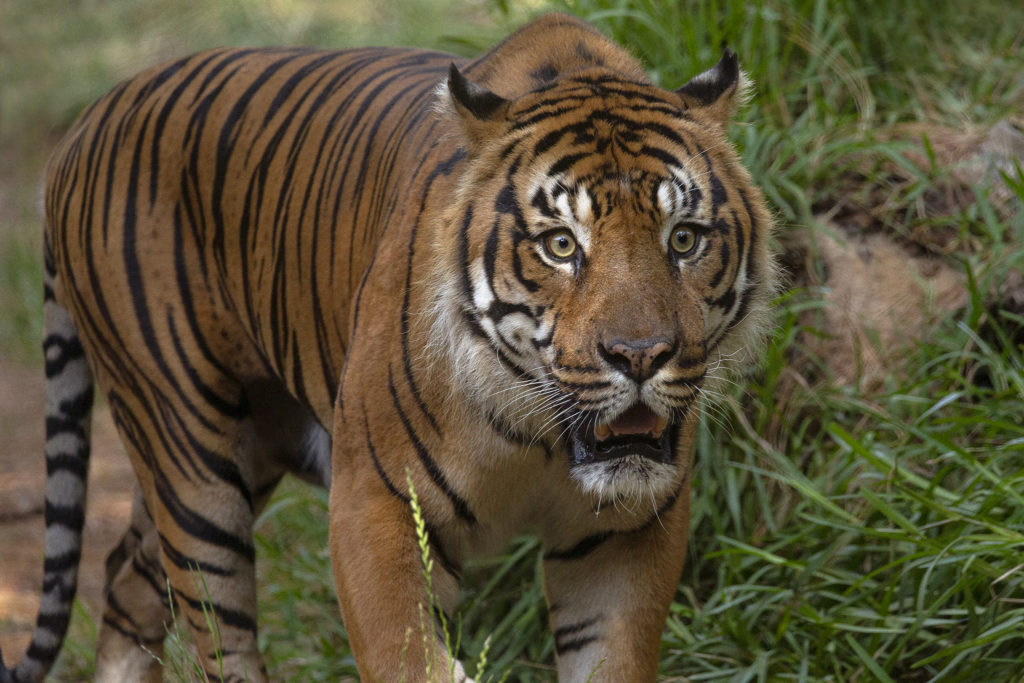
Luckily for us, he is confident, easy-going and acts like he’s lived at Tiger Trail his entire life. He’s also quickly become the new favorite of every other tiger here, and enjoys “howdying” with all of the tigers through mesh doors every day.
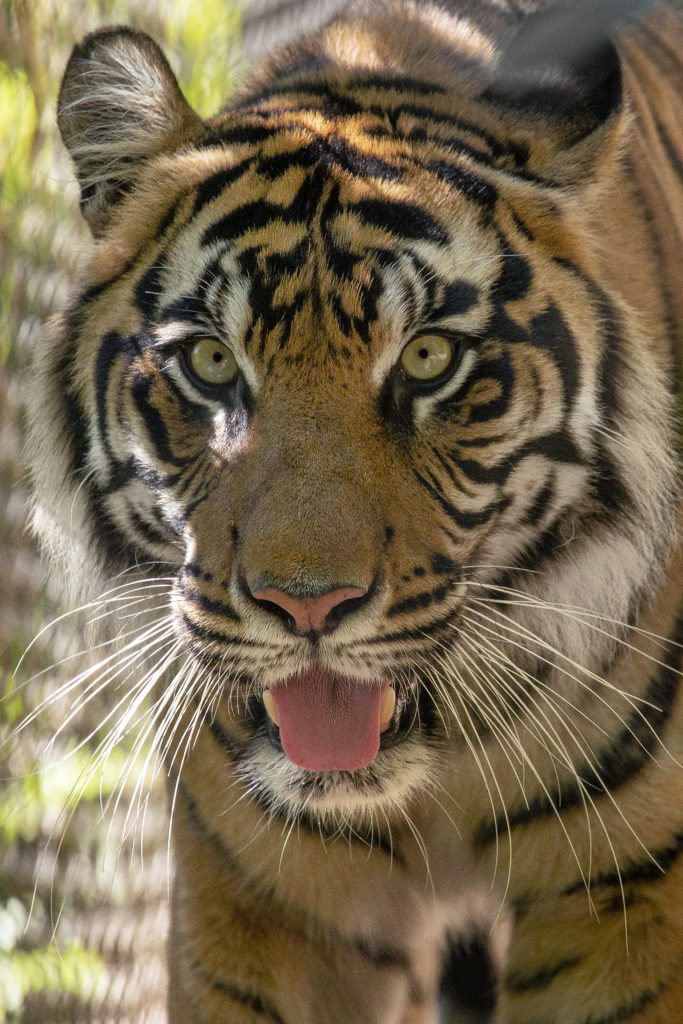
Meanwhile, Diana arrived at Tiger Trail in early May from the San Antonio Zoo. She was born on August 3, 2013, and weighs a diminutive 155 pounds. Diana is very food-motivated and enjoys participating in training sessions with the keepers. She is a bit timid in new settings, but is adjusting well to Tiger Trail. So far these two lovebirds have met through a mesh “howdy,” but we are hoping to introduce them soon! Neither of them have ever bred before, so their potential offspring would be genetically valuable for the Species Survival Plan (SSP).
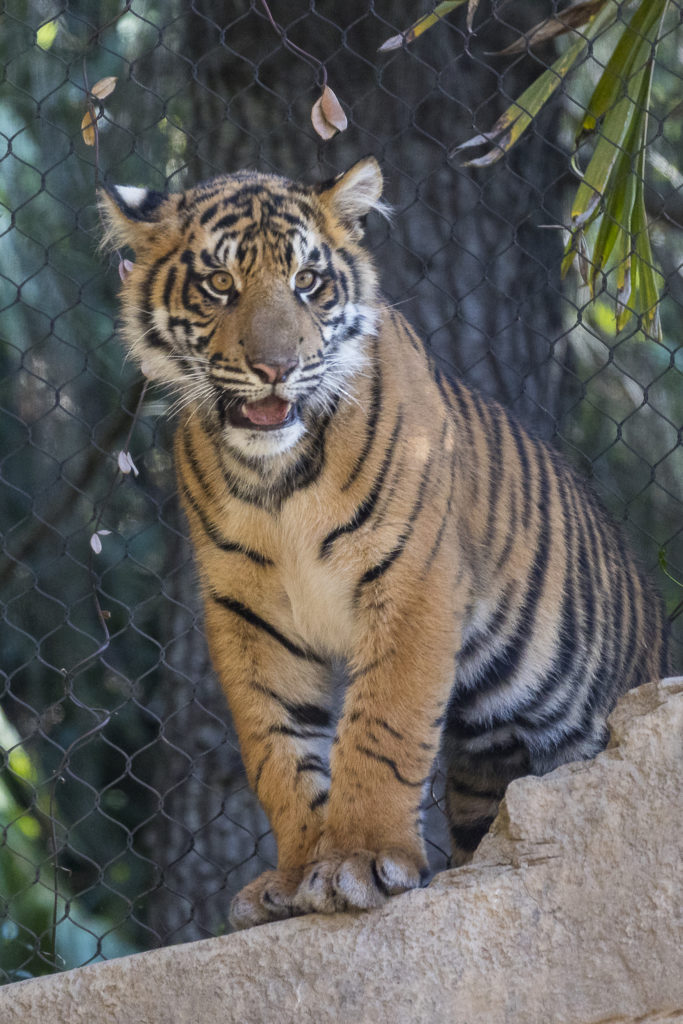
Rakan is starting to show signs of sexual maturity, and is adjusting to life with another male tiger in the house. Luckily, he’s a big fan of Denver! They enjoy “howdying” in the Tiger House and spending time in adjacent exhibits. Rakan is also participating in more advanced training sessions with the keepers and loves playing in mint-scented exhibit pools with his favorite ball.
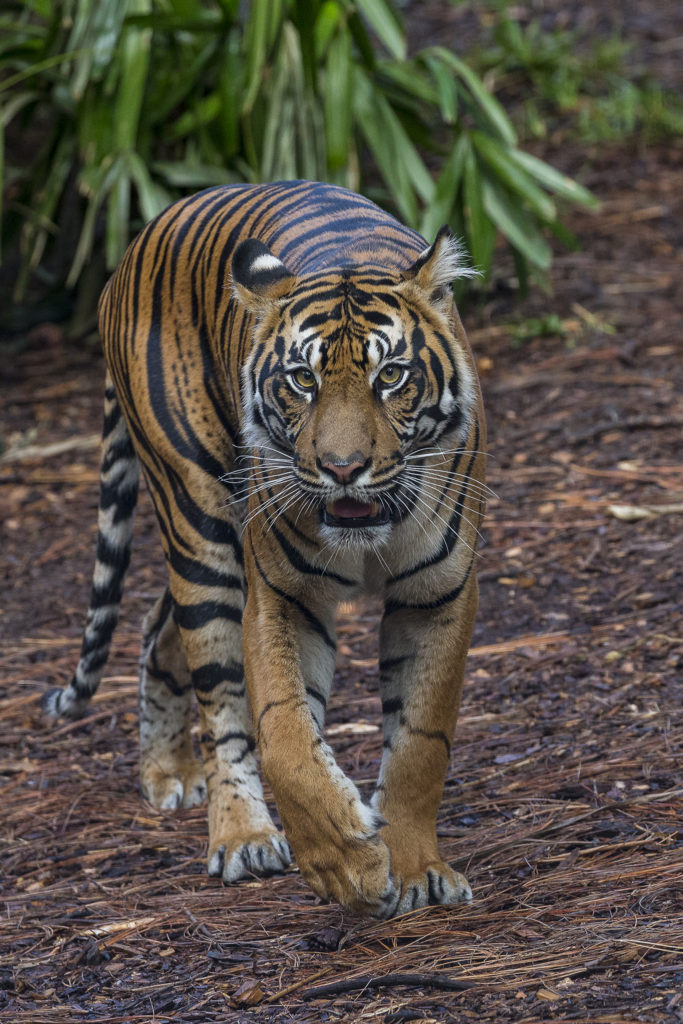
Joanne and Majel are both enjoying life as solitary tigers. Joanne appreciates complex training sessions, lemongrass-scented cardboard boxes, and daily “howdies” with Denver.
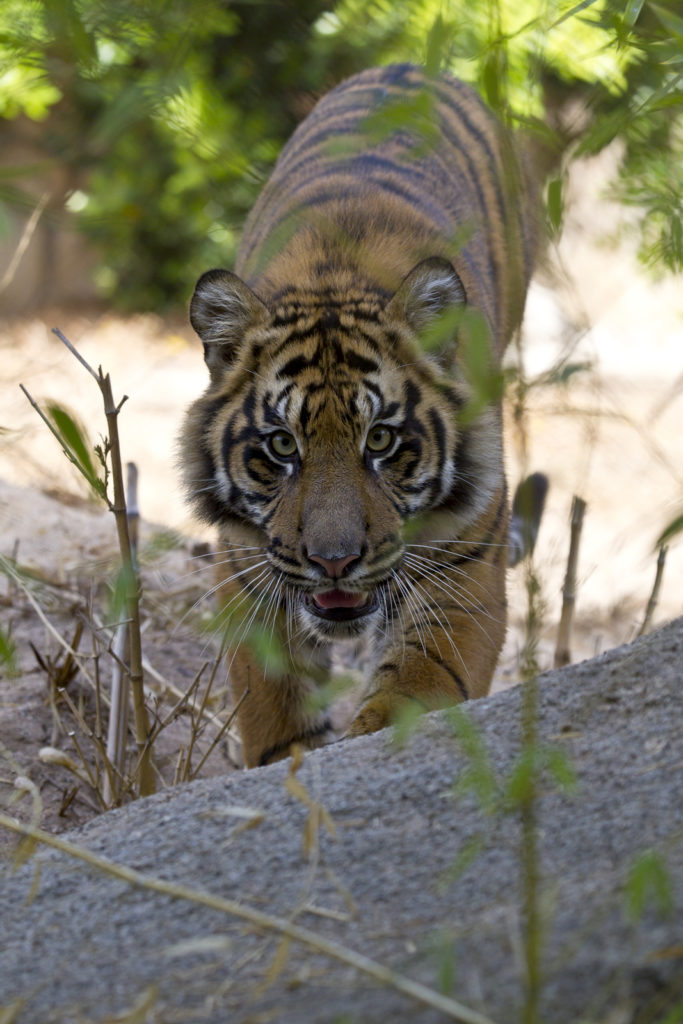
Majel adores Denver and can often be heard long-calling to him on exhibit. Lately, she also participates in tug-of-war demonstrations and loves cinnamon-scented logs. Although keepers still see cyclical estrus signs from Joanne and Majel, neither of them have SSP breeding recommendations for this year since Sumatran tigers require a lot of space, and space is at a premium at many other zoos around the country.
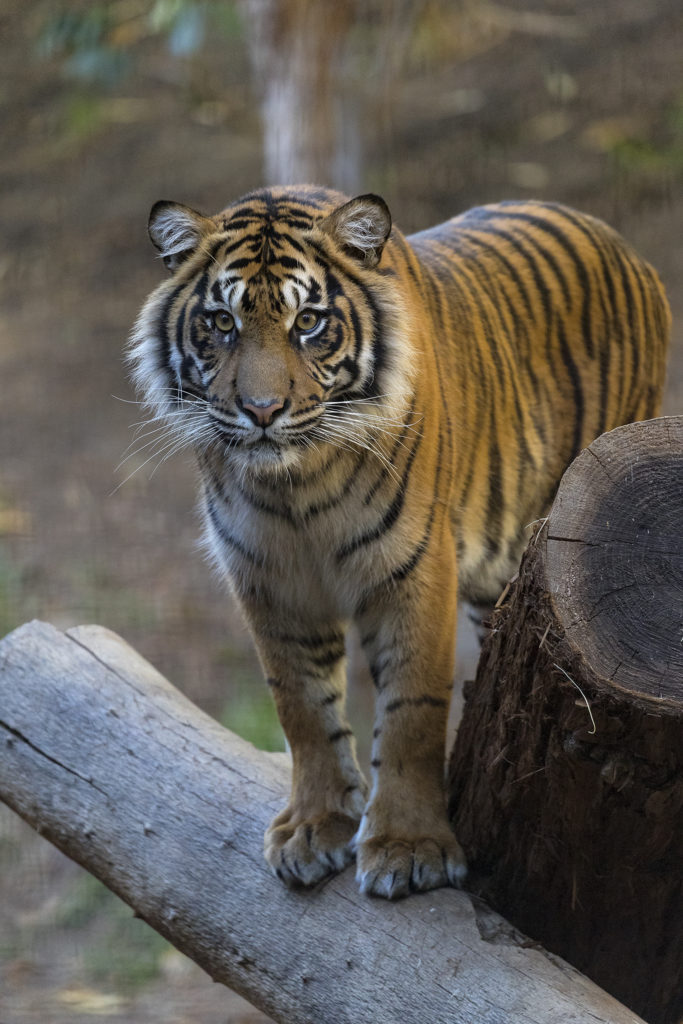
Cathy and Debbie continue to live together, but are displaying signs that they may soon become sexually mature, solitary females. When that happens, they may move to other zoos to fulfill breeding recommendations of their own. But in the meantime, both girls are very food motivated, and are participating in advanced training sessions with the keepers. These two ladies seem to have inherited their mother Joanne’s proclivity for weeble-toy-wrestling!
Tigers face many challenges in the wild, including conflicts with humans and poaching. Tigers are killed by poachers who illegally sell tiger body parts, mostly for folk remedies. People can help protect wild tigers by refusing to purchase items made from endangered wildlife. However, the largest threat to wild tigers is habitat loss. Between 1990 and 2010, 37% of Sumatra’s primary forests were logged. Between 2000 and 2012, 17% of Sumatra was deforested. San Diego Zoo Global researcher Mathias Tobler says, “The erosion of large wilderness areas pushes Sumatran tigers one step closer to extinction. Safeguarding the remaining expanses of primary forests is now absolutely critical to ensuring that tigers can persist indefinitely on Sumatra.”
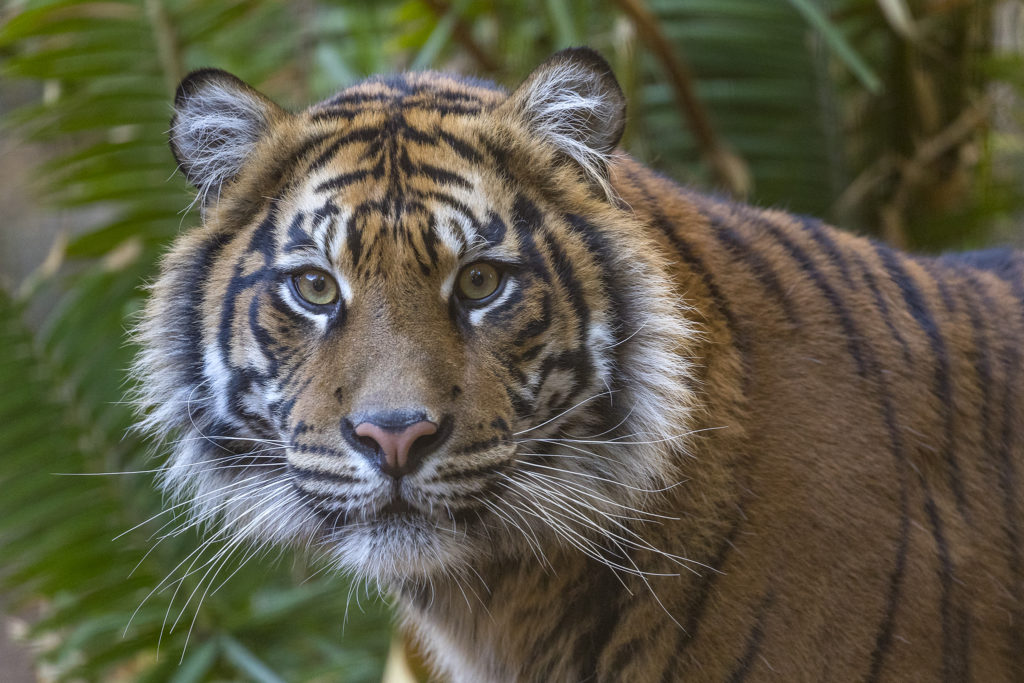
The main cause of deforestation on Sumatra is palm oil plantations. Palm oil is the most widely produced edible oil; over 44 million metric tons are produced in Indonesia and Malaysia per year. Palm oil is found in cosmetics, shampoo, toothpaste, and processed foods like chips and candy. However, palm oil can be produced sustainably. As a consumer, choose products labeled RSPO (The Roundtable on Sustainable Palm Oil) or utilize a free smartphone app to determine which products contain sustainably-grown palm oil, and help save wild tiger habitat.
There are fewer than 500 Sumatran tigers remaining in the wild, and that number continues to drop. Scientists estimate that this species could be extinct in its native Sumatra by next year, unless measures are taken to protect and preserve it. The San Diego Zoo Safari Park participates in a collaborative breeding program to create assurance populations of Sumatran tigers, and provides funding for anti-poaching patrols through the SSP’s Tiger Conservation Campaign. We hope you visit us at the Safari Park on Monday, July 29th for Global Tiger Day to connect with our seven tigers and support our conservation efforts to save these amazing animals!
Elise Montanino is a senior keeper at the Safari Park. Read her previous blog, Tiger Time!

